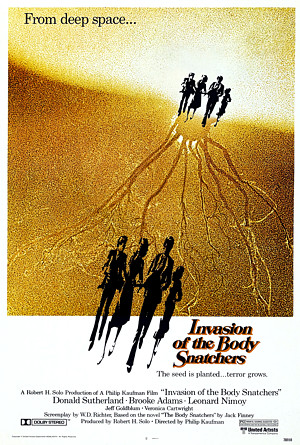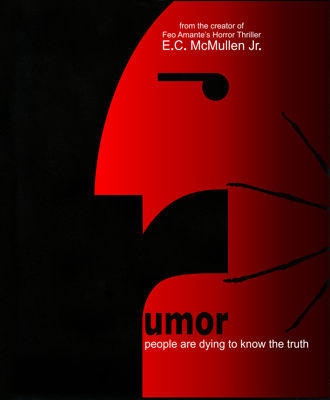 |
  INVASION OF THE BODY SNATCHERS INVASION OF THE BODY SNATCHERSSCIENCE MOMENTS by Kelly Parks & E.C.McMullen Jr. |
 SCIENCE MOMENT BY E.C.MCMULLEN JR. |
Mass illusion? Mass hysteria?
How can forty eyewitnesses be wrong?
It depends entirely on the event, of course, but there are well known incidents from the far past all the way up to today. For example,
What Was the Dancing Plague of 1518?
Scientists and historians still aren't sure what led people in Strasbourg to dance themselves to death.
- History
Was The 'Mad Gasser Of Mattoon' A Poison-Wielding Maniac — Or A Mass Delusion?
The "Mad Gasser of Mattoon" allegedly attacked more than two dozen Illinois townspeople in 1944, but many now believe this disturbing episode was actually a case of mass hysteria.
- ati
It's Time to Revisit the Satanic Panic
As the United States shifted with the anxieties of the 1980s, baseless conspiracy theories about satanic cults committing mass abuse spread around the country.
- NYT
 SCIENCE MOMENT BY KELLY PARKS |
There's no science objection to anything happening here (although a scientist from the 50's would have disagreed).
The only comment I'll make is that the pods, just like the Alien in Alien, could never have evolved on their own. They must have been created as a biological weapon by some very advanced technology, giving them the ability to adapt themselves to any sentient beings they come across.
 INVASION OF THE BODY SNATCHERS - 1978
INVASION OF THE BODY SNATCHERS - 1978
The only thing I didn't like in terms of science was the opening segment.
The alien filaments or spores or whatever float from the surface of a planet, into space and find their way to Earth in both a cheesy, bad effect (the only bad one in the movie) and a manner that demonstrates a complete lack of understanding of gravity in general and the distances between solar systems.
It made me cringe.
The duplicates created by the pods in all three movies seem to be sort of bio-androids, which is fine. But they also have all the memories and knowledge of the people they duplicate.
I have to compliment this movie for showing tendrils extending into the heads of victims, implying some sort of brain download, rather than the implied telepathy of the original.
THE INVASION - 2007
I do like the fact that they did away with the pods. In this movie the spores (very easy to believe as space traveling alien life) infect you and the next time you fall asleep they re-program your brain.
Plenty of precedents for something like this exist in nature. See PARASITE REX by Carl Zimmer.
 SCIENCE MOMENT BY E.C.MCMULLEN JR. |
Unlike the other movies, THE INVASION moved away from Jack Finney's pods in his novel, THE BODY SNATCHERS, and used the mechanism in Robin Cook's 1997 novel, INVASION, of an alien microbe that reprograms the mind and is passed from person to person by infection.
Robin Cook was given no credit for this, though his novel was a New York Times best seller and made into a miniseries in the same year. The screenplay for Cook's novel was by Rockne S. O'Bannon (ALIEN NATION), and starred Luke Perry (BUFFY THE VAMPIRE SLAYER), Kim Cattrall (BIG TROUBLE IN LITTLE CHINA), and Rebecca Gayheart (SCREAM 2).
Yes, Cook's INVASION was a riff off of Finney's novel just like Scott Sigler's INFECTED was a riff off of Finney, Cook, and more besides. Still, if there was a nod somewhere to Cook in 2007's THE INVASION, I missed it.
But Could It Happen?
Here is the thing that all of these movies share: People noticing that their family and friends look exactly the same as always, and yet, are not the same person.
The scary part about that is, it is real.
It's called Capgras syndrome and it can come from a recent head or brain trauma brought on by blunt force or sometimes from fever. Most often, however, it is the result of Lewy body disease.
People with Capgras syndrome visually recognize their loved one by sight, by sound, by touch, by memory (recall past history together - this is not a form of amnesia), and by emotion.
Their problem is, there is a physical disconnect in their brain between the part that processes vision and the part that processes emotion. As such they don't feel any emotional attachment to the person they are seeing, even though they know they have a strong emotional attachment to that person.
The ensuing feeling of Something is Not Right kicks in.
Somehow, some way, their loved one feels like a stranger.
Something's Not Right with this person who looks like my loving child but doesn't feel like my loving child.
Which makes the person with Capgras syndrome paranoid of their child.
However, Capgras Syndrome is only visual. For a person with Capgras, the communication between their hearing and emotional centers of the brain are undamaged.
For example, as long as a Parent suffering from Capgras syndrome cannot see their child but only hear them - say on the phone or from another room - the emotional response and connection remains.
For more information on Capgras syndrome -
Seeing Impostors: When Loved Ones Suddenly Aren't
Capgras Syndrome and Its Relationship to Neurodegenerative Disease
![]()
END
| GET COVERED | |
| FEO AMANTE'S HORROR THRILLER Created by: E.C.McMullen Jr. FOLLOW ME @ |
| Amazon |
| ECMJr |
| Feo Blog |
| IMDb |
| Stage32 |
| X |
| YouTube |
| Zazzle Shop |





